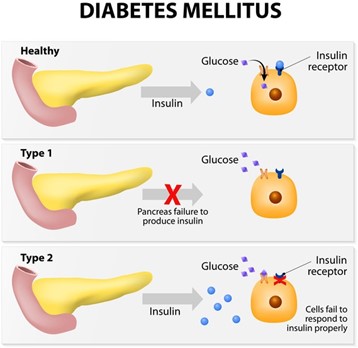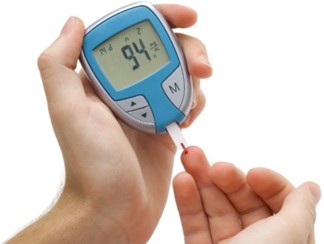A 46-year-old woman presented to the emergency department several days ago with a respiratory infection that caused a hyperglycemic-hyperosmolar event. The client has a history of diabetes mellitus type 2, hypertension, peripheral neuropathy, vascular disease, and retinopathy. The nurse prepares to discharge the client today. After providing discharge instructions, the nurse assesses the client's understanding.
Which of the following client statements indicate a good understanding of diabetic teaching?
Select all that apply.
I will take my glyburide dose with my first bite of breakfast.
It is okay for me to walk barefooted while inside my home.
My antidiabetic medications allow me to eat whatever I desire.
l will make sure that I take my antidiabetic medications even when I am sick.
l will wash my feet, dry them thoroughly and wear clean socks every day.
Correct Answer : A,D,E
Option A indicates that the client understands the timing of glyburide administration, which is typically taken with the first bite of a meal to aid in glucose control.
Option d indicates that the client understands the importance of continuing antidiabetic medications even when they are sick. Skipping doses during illness can lead to uncontrolled blood glucose levels.
Option e indicates that the client understands the importance of foot care in preventing complications related to peripheral neuropathy, such as diabetic foot ulcers.
Option b is incorrect because patients with peripheral neuropathy should not walk barefoot, as they may not feel injuries to their feet, which can lead to diabetic foot ulcers and other complications.
Option c is incorrect because antidiabetic medications do not allow patients to eat whatever they desire. Patients with diabetes need to follow a healthy diet and exercise plan to manage their blood glucose levels effectively.

Nursing Test Bank
Naxlex Comprehensive Predictor Exams
Related Questions
Correct Answer is ["A","C","D"]
Explanation
Option b is not entirely correct because while bulk-forming laxatives contain fiber, they may not always be the best source of fiber, and their use should be individualized according to the patient's needs.
Option e is incorrect because while stimulants and saline laxatives can be effective for occasional constipation, they should not be used regularly or for an extended period without medical supervision as they can lead to dependence and other complications.

Correct Answer is D
Explanation
When performing a self-monitoring blood glucose test, it is essential to choose the puncture site on the side of the fingertip, slightly off-center, and to rotate the puncture sites to prevent lipoatrophy and injury to the nerves and blood vessels in the finger. Puncturing the center of the fingertip can lead to pain, injury to the nerves, and tissue damage.
Options a, b, and c are correct and indicate appropriate actions during self-monitoring of blood glucose. Washing the puncture site using warm water and soap helps to reduce the risk of infection. Waiting for a minute with the arm down before puncturing the site helps to increase blood flow and make it easier to obtain a blood sample. A blood glucose result of 120 mg/dL indicates good blood sugar control within the target range for many patients with diabetes.

Whether you are a student looking to ace your exams or a practicing nurse seeking to enhance your expertise , our nursing education contents will empower you with the confidence and competence to make a difference in the lives of patients and become a respected leader in the healthcare field.
Visit Naxlex, invest in your future and unlock endless possibilities with our unparalleled nursing education contents today
Report Wrong Answer on the Current Question
Do you disagree with the answer? If yes, what is your expected answer? Explain.
Kindly be descriptive with the issue you are facing.
